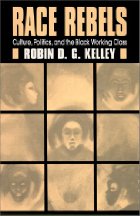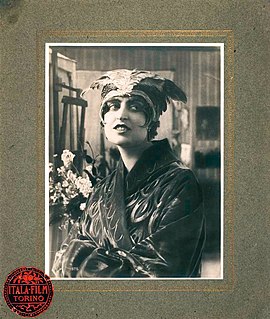
The cinema of Hong Kong is one of the three major threads in the history of Chinese language cinema, alongside the cinema of China, and the cinema of Taiwan. As a former British colony, Hong Kong had a greater degree of political and economic freedom than mainland China and Taiwan, and developed into a filmmaking hub for the Chinese-speaking world.

The history of Mexican cinema goes back to the ending of the 19th century and the beginning of the 20th, when several enthusiasts of the new medium documented historical events – most particularly the Mexican Revolution – and produced some movies that have only recently been rediscovered. During the Golden Age of Mexican cinema, Mexico all but dominated the Latin American film industry.

Brazilian cinema was introduced early in the 20th century but took some time to consolidate itself as a popular form of entertainment. The film industry of Brazil has gone through periods of ups and downs, a reflection of its dependency on state funding and incentives.

Turks in Germany, also referred to as German Turks and Turkish Germans, refers to ethnic Turkish people living in Germany. These terms are also used to refer to German-born individuals who are of full or partial Turkish ancestry. Whilst the majority of Turks arrived or originate from Turkey, there are also significant ethnic Turkish communities living in Germany who come from Southeastern Europe, Cyprus, and more recently as refugees from Syria, Iraq and Lebanon. Turkish people form the largest ethnic minority in Germany. Moreover, they form the second largest Turkish population in the world, after Turkey.

Il Messaggero is an Italian newspaper based in Rome, Italy.
Pornochanchada is the name given to a genre of sex comedy films produced in Brazil that was popular from the late 1960s after popularity of commedia sexy all'italiana. By the 1980s, with the wide availability of hardcore pornography through clandestine video cassettes, the genre suffered a considerable decline. Its name combined pornô (porn) and chanchada, as itself combines comedy and erotica.

Youssef Wahbi was an Egyptian stage and film actor and director, a leading star of the 1930s and 1940s and one of the most prominent Egyptian stage actors of any era, who also served on the jury of the Cannes Film Festival in 1946. He was born to a high state official in Egypt but renounced his family's wealth and traveled to Rome in the 1920s to study theatre. Besides his stage work, he acted in about 50 films, starting with Awlad al-Zawat to "Iskanderiya... lih?". He died in 1982, sick with arthritis and with a fractured pelvis, survived by his wife.
Robert Stam is an American film theorist. He is a University Professor at New York University, where he teaches about the French New Wave filmmakers. Stam has published widely on French literature, comparative literature, and on film topics such as film history and film theory. He wrote with Ella Shohat Unthinking Eurocentrism: Multiculturalism and the Media.
Ella Habiba Shohat is an American cultural-studies academic. She is a Mizrahi/Arab Jew from a Baghdadi family. Her main research interests are post-colonialism and representation in the Middle East. She has written extensively on the idea of the Arab Jew, and recently on the question of Judeo Arabic.

Race Rebels: Culture, Politics, and the Black Working Class is a 1994 non-fiction book by American writer Robin D. G. Kelley. The book, a cohesive adaptation of several articles previously published by Kelley, concerns the impact made by black members of the American working class on American politics and culture. Kelley's work does not focus solely on race, but considers the compound impact of race, class and gender. 2007's Blue-chip Black: Race, Class and Status in the New Black Middle Class draws from Kelley's text as an example of this focus the influence exercised by working class black bus riders in Birmingham, Alabama on segregation during World War II, an analysis described in 2003's Multiculturalism, Postcoloniality, and Transnational Media as "fascinating." Inspired by political anthropologist James C. Scott, Kelley utilizes the concept of "infrapolitics" in exploring the political impact of confrontation between black Americans and white Americans, examining what Scott described as "the circumspect struggle waged daily by subordinate groups [which] is, like infrared rays, beyond the visible end of the spectrum."
Transnational cinema is a developing concept within film studies that encompasses a range of theories relating to the effects of globalization upon the cultural and economic aspects of film. It incorporates the debates and influences of postnationalism, postcolonialism, consumerism and Third cinema, amongst many other topics.

Giannalberto Bendazzi is an animation historian, author, and professor.

Hamid Naficy is a scholar of cultural studies of diaspora, exile, and postcolonial cinemas and media, and of Iranian and Middle Eastern cinemas. He is currently the Hamad Bin Khalifa Al-Thani Professor in Communication at Northwestern University in the department of Radio/Film/Television, an affiliate faculty member in the Department of Art History, and a core member a core member of the Middle East and North African Studies Program. He has written on theories of exile and displacement, exilic and diaspora cinemas and media, and Iranian and Third World cinemas, publishing nearly a dozen books and scores of book chapters and journal articles. In addition, he has lectured nationally and internationally and his works have been cited and reprinted extensively and translated into many languages. His areas of research and teaching include these topics as well as documentary and ethnographic cinemas.

A Woman's Story or The Story of One Woman is a 1920 Italian silent drama film directed by Eugenio Perego and starring Pina Menichelli, Luigi Serventi and Livio Pavanelli. A single mother has to work as a high-class prostitute.
The Story of a Poor Young Man is a 1920 Italian silent drama film directed by Amleto Palermi and starring Luigi Serventi, Pina Menichelli and Antonio Gandusio. It was one of numerous film adaptations of Octave Feuillet's novel of the same name.
The Second Wife or The Second Mrs. Tanqueray is a 1922 Italian silent drama film directed by Amleto Palermi and starring Pina Menichelli, Elena Lunda and Alfredo Martinelli. It is an adaptation of Arthur Wing Pinero's 1893 British play The Second Mrs Tanqueray, about a woman who struggles to overcome rumours about her past.
Take Care of Amelia is a 1925 Italian silent comedy film directed by Telemaco Ruggeri and starring Pina Menichelli, Marcel Lévesque and Elena Lunda. It is based on the 1908 play Occupe-toi d'Amélie by Georges Feydeau, which has been made into several films. It was the final film to star Menichelli, one of the leading divas of early Italian cinema.
Cinema Nuovo was a left-leaning Italian film magazine existed between 1952 and 1996. It was headquartered in Milan, Italy.












